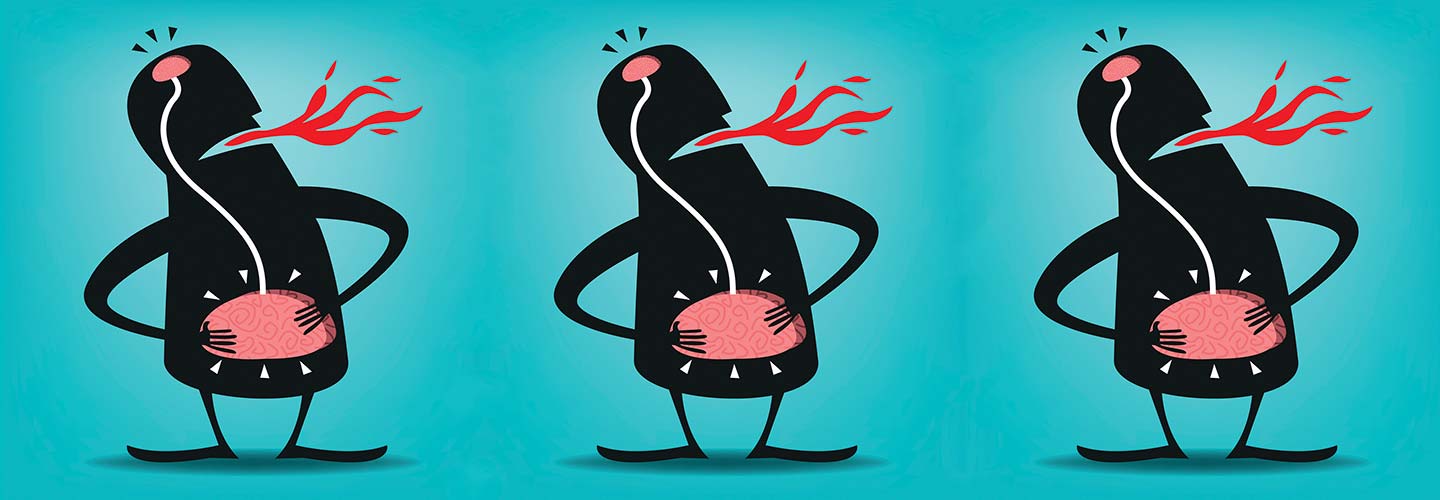DNA… Nurture Your Nature – Session Twelve
- Home
- Blog

Feed Your Gut… The Right Way!
DNA+Environment+Triggers+Chance = Your Gut and Immune System Health
Enhance the Functioning of Your “Second Brain” by Modifying the Expression of FUT2, HLA, and MC4R Genes
– Bruce Alan Kehr, M.D.
Reader, much of what you’ve seen in our Nurture Your Nature genetic series is cutting-edge science—a precision, gene-centered approach to mental health and wellness is very much the next frontier. These are topics that aren’t discussed in the latest news cycle, but you can count on them being discussed in the news cycles in the coming months, years, and decades, as the one-size-fits-all approach to medicine cedes to more individualized care, precision medicine, centered on specific genetic liabilities and strengths unique to each person. However, there are certainly some exceptions. And one area where the mass-market approach has seemingly begun to cede to the influence of our DNA is the world of nutrition. I have a sneaking suspicion that the reason for this exception has something to do with the sheer number of people eager to lose weight or eat healthier: there’s a whole lot of dieters out there, and many of them have tried the latest and greatest fads over the past few years or even decades. But it seems the “one-size-fits-all” weight loss culture reached a breaking point: somewhere between Atkins and South Beach, the fad diet gave way to seemingly thousands of perspectives on what works for whom.
We have slowly begun to account for influences outside mere calorie counts/exercise rates when it comes to weight loss and feeding our bodies the right way: we understand, for instance, that people have different metabolisms and food sensitivities. People are biologically different, and it makes sense that their diets would need to be optimally designed on an individual basis. But I’ll let you in on some of the secrets of that “next frontier”: dieting and nutrition need not be a trial-and-error process. The science is becoming more clear: our genetic code is increasingly able to help us determine what our bodies need on a nutritional level—and what our physical selves are predisposed to become as we eat and grow.
With that in mind, today we turn our focus on the Gastrointestinal and Immune System Domain—and how when it comes to our gut, “one size fits all” should truly be reconsidered as “one size fits… one!”
That Gut Feeling: Your Gastrointestinal and Immune System Domain
Mark my words, reader: In less than five years, the microbiome will become the crowned king of the nutrition and diet domain. If you haven’t heard about the microbiome already, don’t worry—it’s coming. The reason is simple: once thought of as enemy species, the trillions of microbes in our gut (and also in our mouths, on our skin, and inside the vaginal canals of women)—collectively known as the “microbiome” have proven to be so critical to the positive health influences over our day-to-day functioning that some have even labeled this system a “supporting organ”. Indeed, these little microbes help aid in our digestion. But there’s way more complexity surrounding how these microscopic critters influence our health and well-being. When they’re fed what they need, they can help keep our trillions of cells in homeostasis and preserve and protect our brain cells. But when they’re not getting enough of something—or they’re getting too much—our entire physical system gets clogged, our brains get foggy, and our whole body can feel out of whack.
Now, there’s plenty we don’t yet know about the microbiome, including the extent of its impact on our mood and mental state (science tentatively supports a greater impact then many of us might first imagine), but one thing that’s crystal clear now is how well this “support organ” fits within the systems biology approach. You see, we are born with a robust microbiome that is influenced by our mother’s microbiome and even the way we were birthed (some scientists support a non-cesarean section birth wherever possible, as a vaginal birth allows for a more flourishing and diverse microbiome, which in turn can protect a baby from gastrointestinal issues later on in life.) However, as we grow and adapt, so too does our microbiome. Through lifestyle changes like ingesting prebiotics and probiotics, we do have the opportunity to increase the diversity of our gut microbes (diversity is good inside our gut, just like elsewhere in life 😊), changing our health outcomes for the better. In other words, when it comes to our microbiome, just as with every gene in our body, what we are born with does not necessarily have to determine our fate. Let’s take a look at how our microbiome-related genes can further impact our wellness and what we can do about it:
Feed Your Gut the Right Way: FUT2, HLA, and MC4R
The genes in the Gastrointestinal and Immune System domain impact everything from what foods make you sick to your genetic predisposition for chronic illnesses—including obesity. The three described here show just how diverse your gut genes can be, and how much of an impact they can have in your life.
FUT2: As mentioned in the prior section, a diverse microbiome is a healthy microbiome. The reasons for this are still being researched, but one thing we understand right now is that the lack of that diversity can lead to an array of negative conditions. The FUT2 gene affects the surface receptors that allow for the attachment and growth of intestinal microbiota, and provides an important food source for healthy gut bacteria. The “resilient” version of this gene, the “secretors”, support these surface receptors that in turn make a diverse microbiome possible. The “risk” version, or “non-secretors” lead to a lower diversity and dysregulation of gut microbiota. Those with the risk version have a 7-14% increased risk of inflammatory GI conditions like celiac disease or Crohn’s disease. If you know you have a risk allele on this gene, you can begin to take additional steps to promote a healthy gut—pre- and probiotics being a great place to start.
HLA-DQ2 and HLA-DQ8: When it comes to risk alleles in your personal genetic code, this gene is somewhat straightforward: the DQ2 and DQ8 haplotypes (haplotypes are genes that are inherited from a single parent) are strongly associated with Celiac disease—and the DQ5 haplotype is carried in 90-95% of all Celiac patients. Celiac disease (and for that matter less severe forms of gluten sensitivity) can have an impact on your whole body, from your energy levels to your digestive processes to how well your brain functions; and the sooner you know whether you suffer from gluten sensitivity, the sooner you can make those gluten-free changes to your diet to feel better.
MC4R: One area of the next frontier that many have been particularly hesitant to make claims about is the connection between obesity and genetics. I want to be careful here as well—but I also want to give you the same insights being taken so seriously by other colleagues in the medical field. And what some studies have shown is that individuals with a T-C variant on the MC4R gene have a 30% increase in odds of being obese, and higher risk of metabolic syndrome, which can be a precursor to type 2 diabetes. MC4R moderates the effects of leptin, a neuro-hormone that regulates satiety, metabolism, and energy balance. For those with a risk variant, increased food consumption is likely caused from the body’s decreased ability to feel sated. But for those with this variant, obesity is not fate: with exercise and following a Mediterranean Diet, the risk can be moderated. But knowledge of the risk is the first step in knowing how to manage the outcomes.
Go with your Gut for a Healthy Future
Your gastrointestinal system is intricately related with all other systems in the body—from cognition to inflammation to cardiometabolic. Keeping that in mind, making changes that impact your gut microbiome for the better will undoubtedly lead to positive outcomes in all areas of your wellness life. Taking a Mindful DNA test will give you the tools you need to precisely change your habits for the better—and in so doing, pave the way for a greater Healthspan.

Related Information
- Learn about Genetic Testing
- Learn about Potomac Psychiatry
- Meet Our Doctors
- Contact Potomac Psychiatry


